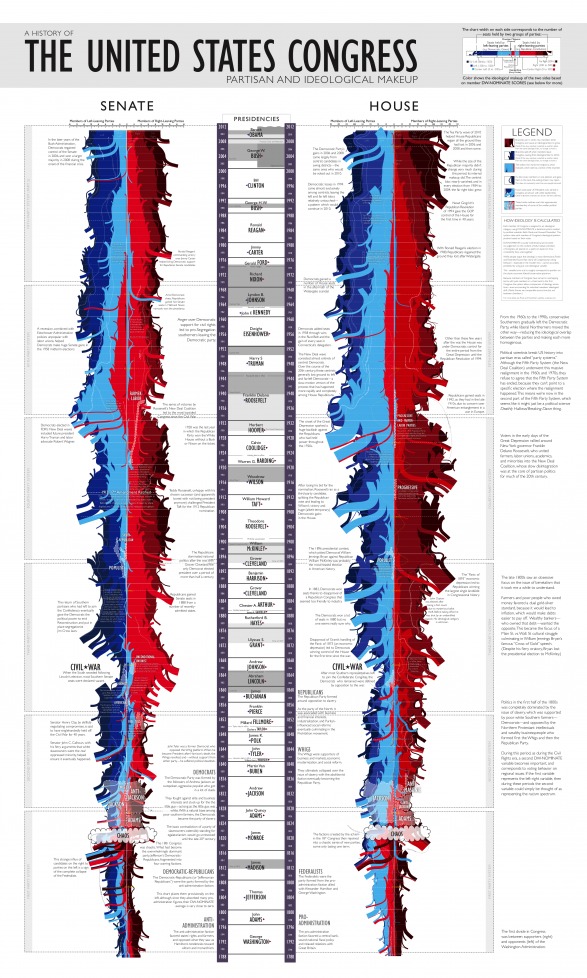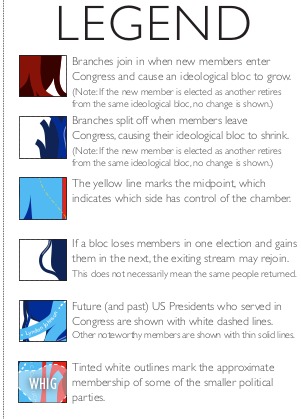How Congress Became More Partisan

Author: Lucas Eaves
Created: 02 Nov, 2012
●
Updated: 17 Oct, 2022●
1 min read
The Congress' approval rate dropped to a historical low of 10% this year and this is mainly blamed of the extreme partisanship in Congress.
The Congress was not always that polarized, this is a recent trend when looking at the history of partisanship in Congress over the last 220 years.
The following infographic, provided by xkcd, illustrates the idea of how the more extreme part of each side of the aisle grew over the years leading to less bipartisan initiatives.
Latest articles
In Oakland, Barbara Lee's RCV Strategy Seen as Critical to Mayoral Victory
In a dramatic shift following the April 15 special mayoral election in Oakland, former U.S. Representative Barbara Lee has been declared the winner, pulling into a commanding lead over former Councilmember Loren Taylor, as vote counting continues....
18 Apr, 2025
-
2 min read
Sanders and AOC Wrap 'Fighting Oligarchy' Tour and Bernie Takes the Mic at Coachella
US Senator Bernie Sanders and Rep. Alexandria Ocasio-Cortez wrapped up their Fighting Oligarchy Tour on April 16, after a five-day, seven-stop sweep through the West that drew nearly 150,000 people—capping it off with an unexpected appearance by Sanders at the Coachella music festival....
18 Apr, 2025
-
3 min read
Is Bernie Passing the Torch to AOC for the 2028 Presidential Election?
US Rep. Alexandria Ocasio-Cortez (AOC) continues to make waves in US politics. She is co-headlining rallies across the country with US Sen. Bernie Sanders as part of the "Fighting Oligarchy Tour," which has drawn large crowds even in GOP strongholds....
17 Apr, 2025
-
4 min read




